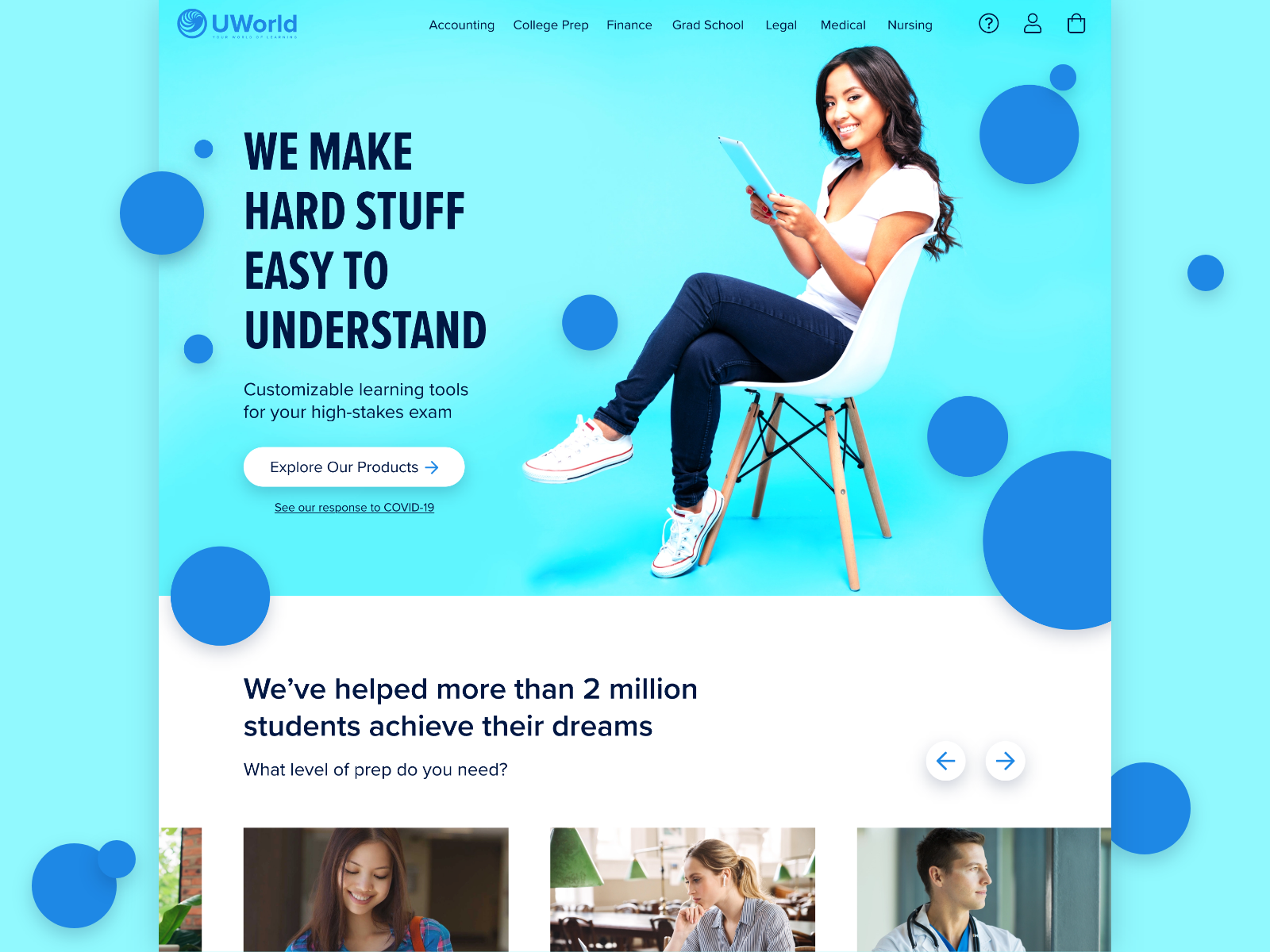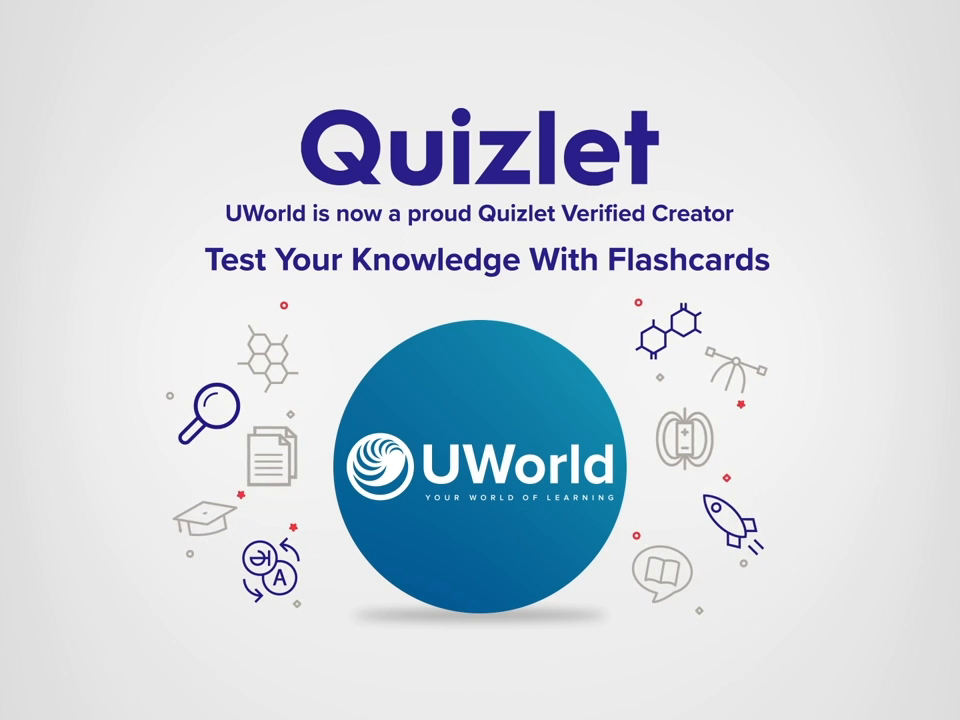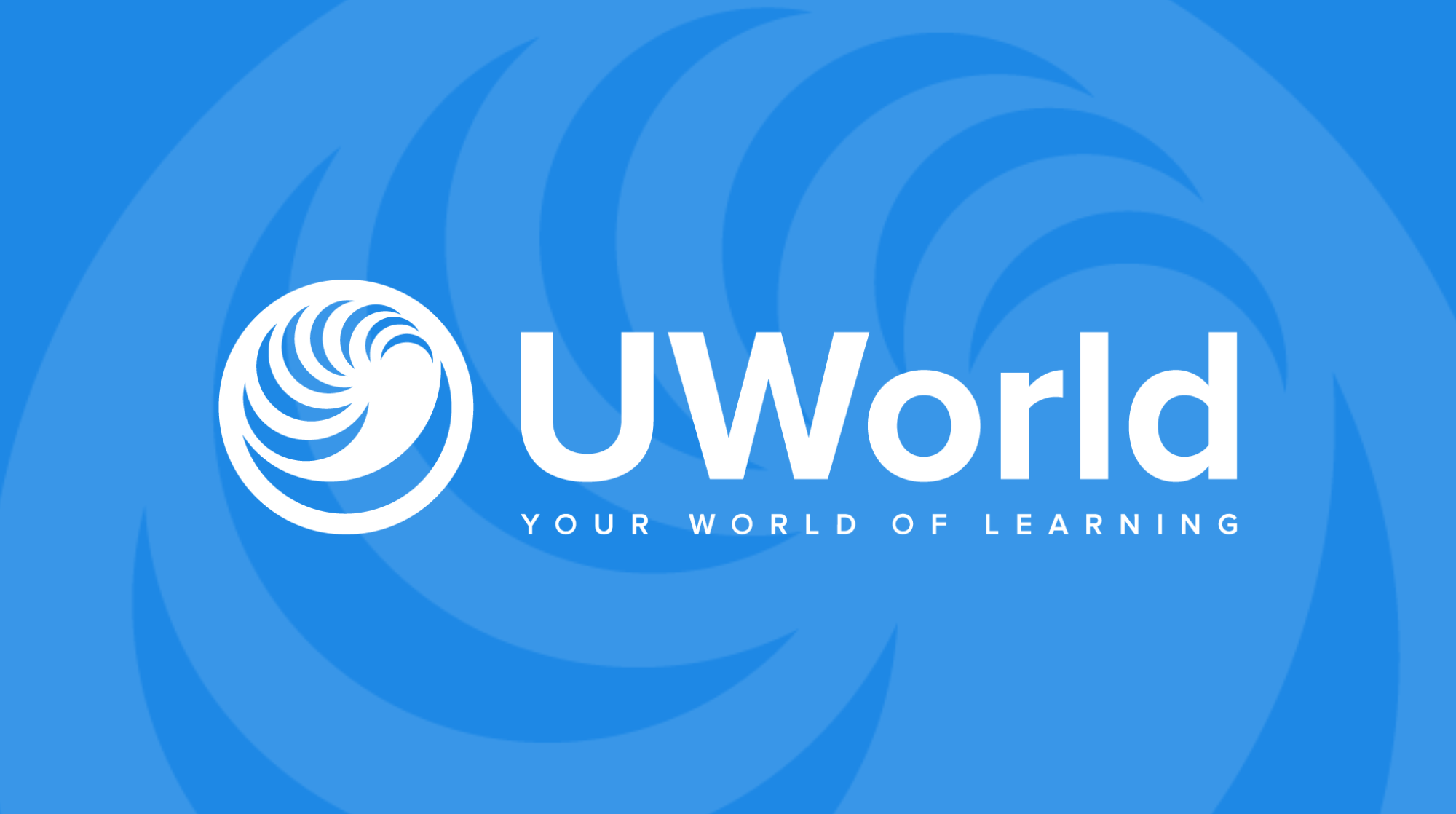To be admitted to the preferred residency and specialty programs, applicants must pass Step 1 of the USMLE. Among other tools, UWorld may assist you in getting ready for this important test. With the right use of UWorld question banks and self-assessments, you may improve your Step 1 study approach and succeed.
Explain UWorld
UWorld is an online learning environment that provides thorough explanations, thought-provoking questions, and flexible study plans to help in USMLE test preparation. The information is updated often to make sure you get and understand the most relevant knowledge to help you handle your unique USMLE Step 1 strengths and weaknesses. There’s a chance that UWorld will be harder than Step 1, with some questions harder than those on the real test.
When Is the Best Time to Start Studying with UWorld?
Academic endeavors have to be viewed as marathons rather than sprints. To raise their USMLE Step 1 results, medical students should start acting early in their first year of study. If you have previously finished the Step 1 exam, make sure you have enough time to be ready for the next one; for most people, this means a few months. Starting early will help you with:
- Maintain your speed. Studying for a sufficient amount of time enables understanding of an idea. Before moving on, you may take your time, go over any questions you might have missed, and make sure you understand a certain topic.
- To acquire knowledge about the format of the test, question types, and time limits on test day, one can familiarize themselves with Step 1 practice examinations.
- Create a plan of action. By following a logical timetable and organizing strategy, you may maximize every task. Respect the times that you set up for studying each day, week, and month.
So what is the procedure?
To outline the orderly development of events, I created a flowchart.
It is wise to go over the explanation that goes with each wrong response or informed guess. The more time needed to review each question, the earlier the allocated study session starts. If you have informed assumptions about a question, you may mark it as “marked” and come back to it later on in your study session. An erroneous response to a question can be noted in a paper, Anki set, or Quizlet collection.
When reviewing questions, it’s also critical to ascertain the reasons behind your wrong response. Were you truly ignorant and unable to provide the answer? Alternatively, is it possible that you misinterpreted the question during the test and made a mistake? Gather the answers to those two questions after every block to see if you need to spend extra time on the subject.
Is UWorld adequate for the first step?
UWorld is inadequate on its own. It would be helpful if you made use of UWorld in addition to the following advice to sufficiently prepare for Step 1:
- Combine UWorld with additional resources, such as first aid and NBME self-assessments.
- To determine which topics need the greatest attention, start each subject with a small number of questions.
- Give more importance to understanding the ideas in the QBank than just getting the right answers.
- As with any research methodology, UWorld must be used effectively if you want the best findings. You may maximize your studies and make an effective USMLE study plan by establishing a good routine and keeping the right mentality while preparing for USMLE Step 1.
First Action: UWorld Strategies
- The fundamentals of UWorld will be covered in this blog article, along with solutions to often-asked queries. It is essential to understand where to start and how to make the most of it.
- In mid-January 2022, USMLE Step 1 and COMLEX Level 1 pass/fail examinations will start. It is important to understand that Step 2 builds upon Step 1 considerably. Learning can be aided by following a traditional timetable and believing that one’s performance is noteworthy.

Issues and Questions
- UWorld is a fantastic resource for getting ready. It is also most likely the hardest and most demoralizing exam prep that one can do.
- Group 1: You should follow the 70:30 guideline since you possess a fair comprehension of the subject matter. 70% of your day should be devoted to responding to or reviewing inquiries. Try your hardest to set aside thirty minutes a day for content assessment. Consequently, questions will take up around eight hours of a twelve-hour study day.
- Group 2: You should focus on increasing your knowledge because you are struggling to pass the NBME practice exams. Turn the 70:30 ratio around. Allocate 70% of your daily schedule to enhancing your content expertise. Give First Aid and Pathoma first priority. After the time has been established, go on to group 1 to spend more time answering questions.
Everyday Schedule
- Group 1: Try your best to finish at least two parts, each with forty questions. If you want to go over the complete set of material for that day, it is best to restrict yourself to no more than three portions per day. Each session will take three hours to complete, including time for content study and question responses. There are many forms available for you to choose from while completing these questions: timed, tutored, random, or topic-specific. To prepare for the test, I would advise doing certain portions randomly and in a timed fashion.
- Group 2: Try to respond to forty questions a day about the content you are currently reviewing.
Analyzing Queries
Do not go on to the next set of questions until you have finished reviewing this block of questions. Students are often faced with mountains of unanswered questions. Questions that don’t provide useful information are pointless and inefficient. UWorld is a tool for studying; it is not an assessment. Whether you get 30% or 90% accuracy, it doesn’t matter; if you don’t learn from your mistakes, the effort is pointless.
Is it better to read the UWorld explanations or commit them to memory?
Some students claim that they respond to hundreds of UWorld inquiries every day. Many of these students are either fast-reading the explanations or rating their own performance.
I would suggest looking over the explanations in detail. Even if you might already know the answer to the question, the explanation can include further information that will be useful during the test. If you want to get a better grade, you have to learn as much as possible.

How many UWorld modules am I supposed to study each day?
Depending on how many questions you can finish in a given day, I would advise doing one to two blocks of questions per day. If you could answer 80 questions in two periods, you would finish the questions in the morning and spend the afternoon going over them again, reading the explanations, figuring out where you need to make the most progress, and figuring out where you could be lacking in knowledge.
Is it better to pursue random or system-based UWorld?
System-based inquiries are preferable, in my perspective. It makes more sense to explore a subject while studying similar areas concurrently to make the connections. Studies have indicated that the capacity to create links between disparate bits of knowledge enhances learning and facilitates the retention of this information.
- Some could contend that one should approach their study randomly because the test is arbitrary.
- While the haphazard study may mimic the style of an exam, it does not help inquiries within the same system to connect with one another when you’re studying. You are allowed to ask random questions.
- They can be finished during practice examinations, NBMEs, and UWorld evaluations. It makes more sense to approach learning methodically.
A database of study questions is called UWorld. Studying, not evaluating oneself, is the goal. It makes more sense to make these links when studying. Put off the haphazard questions until another time.
Which is better, the Timed Mode or the UWorld Tutor?
Answers to questions are shown when you solve them, go over the explanation, and study the question in tutor mode. Explanations are shown after you finish a series of questions in a timed style.
I would suggest using timed mode because the exams are timed; each of the several question segments will run for an hour. Studying in timed mode will help you mentally get ready for how difficult you think the exam will be. If you were training for a marathon, you would probably run a lot of long distances instead of sprinting 100 meters.
When should I start using UWorld?
If you are a second-year medical student, get UWorld right now and start solving problems to build a foundation in the basic sciences.

Five Serious Mistakes Students Make When Using UWorld
For its student-related operations, Med School Tutors heavily depends on UWorld. Over the past ten years, UWorld has gained worldwide acclaim as the gold standard Qbank for all USMLE exams. mostly due to the quality of its questions and the comprehensiveness of its explanations. Because UWorld material is updated often, the Qbank is kept up to date with the latest developments in the rapidly changing fields of medical testing and medicine. Why do learners who use UWorld not always attain exceptional outcomes? Which possible risks should second-year medical students be aware of when getting ready?
Top mistakes to avoid when getting ready for UWorld Step 1:
1. Starting UWorld too late in the Step 1 study session
Many students come to us worried about why UWorld questions are starting so early in their Step 1 study time. They assert that they are unprepared to manage a Qbank with the complexity of UWorld. They would want to start with a Qbank that is easier or to emphasize reading more. There is a mistake here!
- An examination consisting of questions is the first phase. As a result, using UWorld questions regularly and early on is the best way to get ready for Step 1. You will most likely have covered part of the content even if you haven’t finished the whole course load five months before your test.
- For example, after finishing your immunology course, finish some immunology-related UWorld questions! If you are familiar with biochemistry, gather a couple quick sets of UWorld biochemistry questions. Finish answering some heme-related questions during your second-year heme session.
- Challenging questions offer a great way to focus on learning and pinpoint areas where one needs improvement. Completing UWorld inquiries on the topics you are learning in class could also be helpful to you.
Remember that different fields could have different question sets. You can decide to focus on heme pathology or heme pharmacology if such topics are covered in your course. Dealing with biochemistry or statistics during a block on heme pathophysiology is not required. You will become more proficient at question-based learning when you have been exposed to difficult case vignettes initially.
2. Too little time spent reading UWorld explanations
One of the biggest and most harmful mistakes medical students make while using UWorld Qbanks is to skim the explanations for the questions. Those who scored at least 240 on Step 1 are aware that the true value of UWorld comes from its excellent explanations.
- It makes one worry about UWorld. They act as a means of refining the clinical reasoning, pattern identification, and test-taking skills required to perform highly on the USMLE.
- However, answering UWorld question banks and reading the explanations is not enough to show that you have mastered the material.
- Achievers understand that UWorld is best used as a learning resource, where most learning takes place through the assessment of explanations. especially for the questions they got wrong.
- Eighty percent of the material will be erroneous responses in the case where there are five answer choices and only one valid answer. Reading through all of the explanations is required to completely understand the question.
- Is there a deadline to meet? Without a doubt! Students express concerns like “I find myself devoting an excessive amount of time to UWorld sets,” “Reviewing my blocks is taking an eternity,” and others in a similar vein. To which we reply, “No, you’re not. We learn in such a manner.”
3. First aid has nothing to do with the explanatory assessment of UWorld Qbank.
But what many students don’t know is how best to integrate the First Aid study with the UWorld question bank review to sufficiently prepare for Step 1. The UWorld Qbank is designed as a way to bring the First Aid program’s content to life or make it more understandable. Anyone who has ever tried to read a First Aid chapter in its entirety as a narrative knows how challenging that can be.
We’ve found from our extensive work with students and our own study experiences that linking UWorld to First Aid is an incredibly effective way to make sure that the content in the book is retained. For the best question bank review, you should therefore have a copy of First Aid on hand for annotation or even just to find the information. Get ready to turn the pages! One of the best ways to learn first aid.
4. Giving percentages of right answers precedence over acquiring material.
Data is what motivates medical students. We are all drawn to statistics, trends, percentages, and the like. We, however, step into a trap if we allow the numerical data from UWorld to take center stage in the learning component. Students get overly obsessed with the total number of results and the correct answer percentages when the most important thing is how much we learn from the explanations. It is crucial to stress that UWorld is intended primarily for educational purposes rather than assessment.
Additionally, students who obsess over numbers are more likely to suffer from study inertia. This is because before moving on to the next question block, these students worry that they have mastered the material, which leads to more reading, passive video watching, and note review. Students move slowly through the Qbank to optimize their chances of achieving high percentages on the next set. Set aside your numerical worries! Your percentages are private. Remind yourself of where your focus should be: improving your test-taking skills and mastering the exam material.
5. Making one use of the UWorld Qbank
For many of the reasons listed in this article, students make this grave mistake: they focus too much on percentages; they don’t want to waste questions; or they want to start with a simpler Qbank as a warm-up. Students often don’t realize, when it’s too late, that this Qbank has too much material, which is again concentrated in the explanations. It takes multiple runs through the Qbank to fully understand its key concepts and get the most out of this great learning resource. Since most students (and ourselves) don’t have photographic memories, repetition is crucial for material mastery.
Mastery learning necessitates selecting the best tools and techniques and practicing iteratively. If you are a second-year student and have not yet acquired UWorld Qbank, go ahead and purchase it. If you purchase UWorld on your own, find out if your school allows students to have subscriptions. As soon as you have a foundation in basic science, start working on problems. Starting early increases the likelihood of achieving high scores and getting into the 240+ club. You will be assigned a seat.

Conclusion
In summary, Step 1 of the United States Medical Licensing Examinations (USMLE) is a crucial milestone on the route to residency and specialization for medical students. UWorld is acknowledged as a very helpful resource in the array of tools available to support effective exam practice. UWorld’s virtual classroom offers a vast array of thought-provoking questions, thorough explanations, and flexible study plans, enabling a dynamic and customized method of determining and correcting individual weaknesses and strengths.
As you begin this endeavor, remember that a passing score on the USMLE Step 1 not only grants admission to the residency program of your preference but also lays the foundation for your entire medical career. UWorld’s question banks and self-assessments can help you greatly enhance your Step 1 study regimen, offering a practical and demanding preparatory experience that may surpass the exam’s true level of difficulty. The platform’s commitment to regular content updates guarantees that users remain informed about the most current and pertinent material, thereby reinforcing their understanding of the fundamental concepts required to excel in the USMLE Step 1.
FAQs:
What is the aim of the USMLE Step 1 exam?
The USMLE Step 1 test is a crucial requirement for establishing whether medical students may enroll in residency programs and specializations in the US. It assesses basic medical knowledge and has a substantial impact on the career path of medical practitioners.
How does UWorld support one’s USMLE Step 1 preparation?
UWorld offers an online learning platform with a large question bank, thorough explanations, and customizable study modules to help prepare for the USMLE Step 1. Having a demanding yet realistic practice environment makes it easier to recognize and address individual weaknesses and strengths.
Is UWorld harder than the Step 1 exam, in your opinion?
Some users have noted that some UWorld questions are slightly trickier than the real Step 1 exam. Students who purposefully push themselves through the material will undoubtedly gain a thorough and in-depth comprehension of it, which could lead to better scores on the actual exam.
How often does UWorld change its content?
UWorld regularly updates its content to ensure that users have access to the most relevant and up-to-date information possible. This dedication to staying up to date on changes in test material and medical breakthroughs strengthens the usefulness of UWorld as a study tool.
Is UWorld the only place to go to be ready for the USMLE Step 1?
While UWorld is an incredibly helpful tool, it is usually recommended to use a variety of study materials for thorough preparation. Textbooks, lecture notes, and other resources can be added to UWorld to create a well-rounded study plan that will help you understand the vast array of topics covered in the USMLE Step 1 exam.
Also Read: The Outsourcing Advantage: How a Dedicated Development Team Can Propel Your Business



